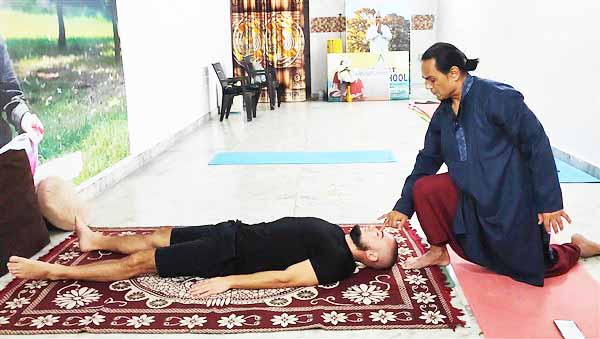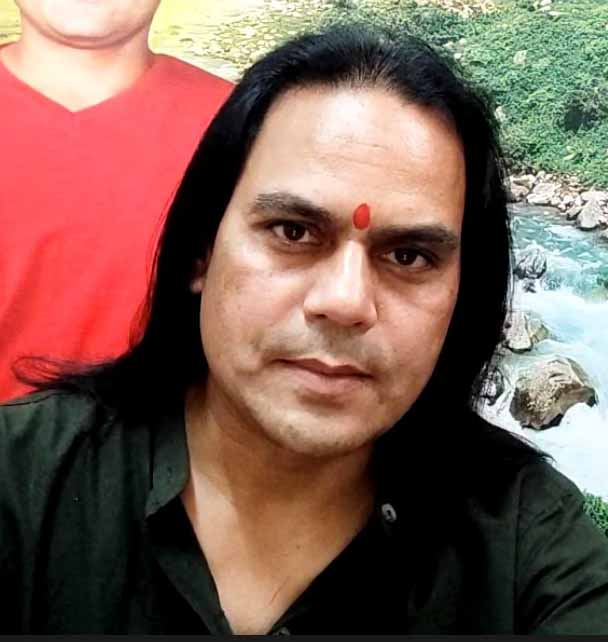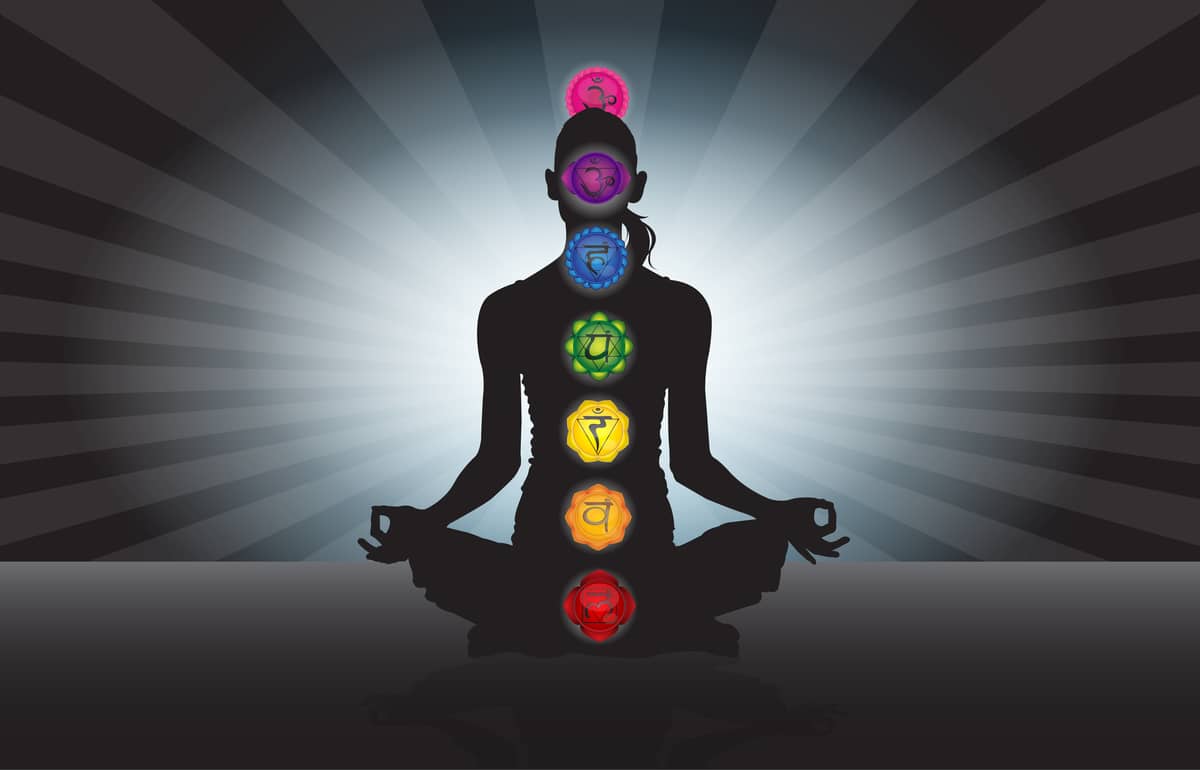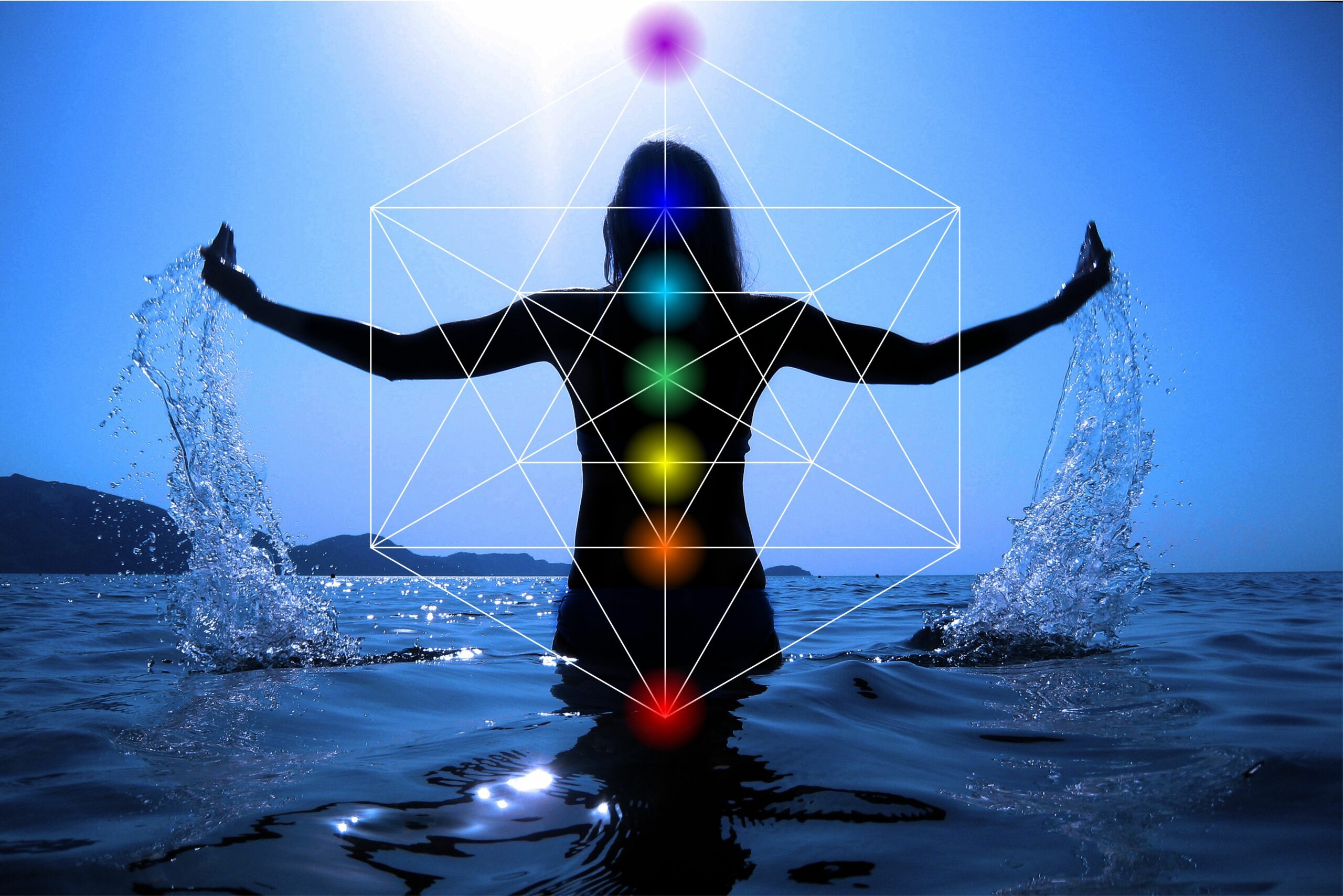
Why Buddha didn’t talk about Kundalini and Chakras?
The teachings of the Buddha have profoundly shaped spiritual thought and practice around the world. When examining the Buddha’s teachings, one finds a distinct absence of
Discover the transformative power of Kundalini Energy through our Kundalini Activation Process (KAP) Training Course at Adwait Yoga School. This ancient practice, rooted in centuries of tradition, holds the key to unlocking your fullest potential.
The Kundalini Activation Process is a unique and powerful journey. Unlike traditional yoga practices, KAP focuses intensely on awakening the Kundalini energy, guiding it through the chakras to achieve a state of heightened awareness and spiritual connection.
In this comprehensive course, we will delve into the intricacies of the KAP Training Course offered by Adwait Yoga School. Our goal is to provide you with a clear understanding, authentic knowledge and proper training of Kundalini Activation Process (KAP) Training, its profound benefits, and how it can transform your life.
The KAP Training Course program is for both who just want to learn for themselves, and also for them who later want to teach others.
Embark on a transformative journey through our comprehensive Kundalini Activation Process (KAP) Training courses with Adwait Yoga School in the guidance of master Sri Yogi Anand. Designed for individuals at every stage of their spiritual journey, our KAP Training is segmented into three distinct levels: Level 1 (Beginner), Level 2 (Intermediate), and Level 3 (Advanced). Discover the path to your inner awakening and harness the power of Kundalini energy under the guidance of our master Guruji Sri Yogi Anand.



Duration: 1 month
Overview: Level 1 serves as the gateway to your Kundalini activation journey. This foundational course is designed to introduce you to the principles and practices of Kundalini activation, focusing on personal spiritual growth and the physical embodiment of this sacred energy. Through a blend of in-person and online training, participants will be equipped to hold a powerful and safe space for personal and collective transformations.
Key Features:
Who Should Attend: Ideal for beginners and those new to the concept of Kundalini, seeking to explore the depths of their spiritual potential.

Duration: 2 months
Overview: Building upon the foundations laid in Level 1, Level 2 delves deeper into the Kundalini Activation Process. This level is tailored for individuals who have completed Level 1 and wish to expand their understanding and experience of Kundalini energy. The training emphasizes direct transmissions, allowing for profound non-dual states of consciousness and a deeper embodiment of the KAP energy.
Key Features:
Who Should Attend: Level 1 graduates looking to deepen their practice and understanding of Kundalini energy, and aspiring to further their journey as KAP facilitators.

Duration: 3 months
Overview: Level 3 is the pinnacle of KAP training, designed for those who have successfully completed Levels 1 and 2 and are committed to achieving mastery in Kundalini activation. This level focuses on training participants to become KAP trainers themselves, capable of guiding others through their Kundalini awakening journeys. The curriculum is intensive and demands a high level of dedication and commitment.
Key Features:
Who Should Attend: Experienced KAP practitioners and facilitators from Levels 1 and 2, seeking to elevate their practice to a teaching and leadership role within the KAP community.
The Kundalini Activation Process (KAP) is a unique and transformative practice within the realm of spiritual development and energy work. It’s designed to facilitate the awakening of Kundalini energy, which is believed to be a potent force residing at the base of the spine.
1. What is Kundalini Activation Process?
2. Methods and Techniques:
3. The Role of KAP in Modern Spiritual Practice:
1. Physical and Emotional Healing:
2. Enhanced Mental Clarity and Peace:
3. Spiritual Growth and Awakening:
1. The Importance of Qualified Guidance:
2. Potential for Intense Experiences:
3. Individual Variability:
In summary, the Kundalini Activation Process offers a unique approach to spiritual awakening and self-discovery. It’s a practice that demands respect for its potential power and should be approached with mindfulness and guidance.
Kundalini Activation Process (KAP) is a contemporary spiritual methodology designed to awaken the Kundalini energy. Unlike traditional Kundalini Yoga, which emphasizes a combination of postures (asanas), breathwork (pranayama), and meditation, KAP is often more focused on the direct transmission of energy from facilitator to participant.
Key Elements of KAP:
1. Complementing Traditional Practices:
2. Emphasis on Energy Work:
3. Accessibility and Adaptability:
1. Physical and Mental Well-being:
2. Spiritual Awakening:
3. Emotional Release and Healing:
4. Enhanced Self-awareness and Mindfulness:
5. Community and Connection:
In conclusion, KAP offers a unique, energy-focused approach to spiritual and personal development. It’s a valuable addition to the broader landscape of modern yoga and spiritual practices, appealing to those seeking an alternative yet profound pathway to personal transformation and enlightenment.
Adwait Yoga School’s approach to the Kundalini Activation Process (KAP) integrates traditional yogic wisdom with contemporary techniques to provide a holistic and transformative experience for its practitioners. Their method is characterized by a blend of depth, safety, and accessibility, catering to both newcomers and experienced yogis alike.
Holistic Integration:
Safety and Individual Attention:
Experienced and Compassionate Facilitators:
Personalized Guidance:
Integration of Modern and Ancient Wisdom:
Community and Support:
Balanced Approach:
Continued Learning and Support:
In summary, Adwait Yoga School’s approach to KAP is deeply rooted in traditional yogic philosophy while being adaptable to the needs and contexts of modern practitioners. Their focus on safety, personalization, and holistic integration makes their KAP training a deeply enriching experience for those seeking spiritual awakening and personal transformation.
 Sri Yogi Anand, the visionary founder of Adwait Yoga School, devoted his life to the practice and teaching of Yoga, Meditation, and various Healing Systems. Under his guidance, the school became a repository of knowledge for several forms of these ancient practices. Here we delve into the diverse types of Yoga, Meditation, and Healing Systems that were central to his teachings.
Sri Yogi Anand, the visionary founder of Adwait Yoga School, devoted his life to the practice and teaching of Yoga, Meditation, and various Healing Systems. Under his guidance, the school became a repository of knowledge for several forms of these ancient practices. Here we delve into the diverse types of Yoga, Meditation, and Healing Systems that were central to his teachings.
Types of Yoga
Sri Yogi Anand’s approach to Yoga was comprehensive, integrating various styles and forms to cater to the spiritual and physical needs of his students. The main types of Yoga taught under his tutelage included:
Hatha Yoga: The foundation of physical practices, Hatha Yoga at Adwait focused on Asanas (postures) and Pranayama (breath control) to prepare the body for deeper spiritual practices. Anand emphasized the importance of mastering the body to harmonize and balance the flow of prana (vital life force).
Raja Yoga: Also known as the “royal path,” Raja Yoga was taught as a means to self-discipline and self-discovery. It included the eight limbs of Ashtanga Yoga, leading to the ultimate goal of Samadhi (enlightenment or union with the divine).
Kundalini Yoga: Sri Yogi Anand has been practicing Kundalini Yoga since 1984, his childhood. Since then he has been practicing it and later he started teaching this holistic Yoga to the worldwide people.
Bhakti Yoga: The path of devotion and love was a significant aspect of Anand’s teachings. He encouraged practices that cultivate a deep emotional connection to the divine, including singing, chanting, and other devotional rituals.
Karma Yoga: Anand instilled the importance of selfless action without attachment to results as a means to purification and spiritual growth. Students were encouraged to engage in service within the ashram and the broader community.
Jnana Yoga: The path of wisdom and knowledge involved an inquiry into the nature of reality. Anand’s satsangs (spiritual discourses) often revolved around the teachings of non-dualism, encouraging students to contemplate the nature of the self and the universe.
Tantra Yoga: Tantra was taught not in the commonly misunderstood Western sense but as a profound and esoteric practice that uses symbols, rituals, and energy work to transcend the physical and enter higher states of consciousness.
At Adwait Yoga School, our Kundalini Activation Process (KAP) course is meticulously designed to guide you through the journey of awakening and harnessing your Kundalini energy. This course combines traditional teachings with contemporary methodologies, ensuring a comprehensive, enriching, and transformative experience.
1. Introduction to Kundalini and KAP:
2. Preparation for Kundalini Awakening:
3. Techniques for Activating Kundalini:
4. Managing Kundalini Energy:
5. Advanced Practices and Techniques:
6. Integration and Application:
1. Interactive Lectures and Discussions:
2. Practical Workshops and Demonstrations:
3. Personalized Guidance:
4. Group Sessions and Community Practice:
5. Reflection and Journaling:
1. Course Completion Certificate:
2. Accreditation:
3. Pathway to Advanced Studies:
4. Continuous Learning and Support:
In summary, the KAP course at Adwait Yoga School is a comprehensive program combining theoretical knowledge with practical application, personalized guidance, and community support, all within a safe and nurturing environment. Whether you are at the beginning of your spiritual journey or looking to deepen your practice, this course offers the tools, knowledge, and support needed for a profound and transformative Kundalini experience.
In summary, the KAP course at Adwait Yoga School is designed for a wide range of individuals – from those new to spiritual practices to experienced practitioners. The key is an open heart, a willing mind, and a readiness to embark on a transformative journey. The course’s prerequisites ensure that participants are adequately prepared to engage with and benefit from the profound experience of Kundalini awakening.
Embarking on your Kundalini Activation Process (KAP) journey at Adwait Yoga School is a straightforward process designed to be as seamless and accessible as possible. Below is a step-by-step guide on how to enroll in our KAP course, along with details on the fee structure.

Carefully read through the course details, including course content, schedule, and instructor profiles, to ensure that the course aligns with your expectations and needs.
Review the eligibility criteria and prerequisites for the course to confirm that you meet the requirements.

Fill out the online application form with your personal details, background information, and any specific needs or expectations you have from the course.

Once your application is submitted, wait for a confirmation email from Adwait Yoga School, which will include further instructions and payment details.

Upon receiving confirmation, complete your enrollment by making the payment through the provided secure online payment portal.

After payment, you will receive an enrollment package via email, including detailed course information, preparation guidelines, and access to the training.
We’ve 3 types of fee as per the course level and duration.
Payment Plans:
Enrolling in the KAP course at Adwait Yoga School is an investment in your personal and spiritual development. We strive to make the process as inclusive and accommodating as possible, ensuring that all who wish to embark on this transformative journey can do so.

the Kundalini Activation Process (KAP) course at Adwait Yoga School stands as a beacon of transformation and spiritual awakening. This course offers a unique blend of ancient wisdom and modern practices, tailored to guide you through the profound journey of Kundalini awakening. Key benefits include deep personal growth, emotional healing, enhanced mental clarity, and a heightened sense of spiritual connection. With experienced facilitators, a supportive community, and a curriculum that balances traditional teachings with practical application, this course is a gateway to discovering your true potential.
As you stand at the threshold of this transformative experience, we invite you to take the next step. Whether you are new to spiritual practices or seeking to deepen your journey, the KAP course at Adwait Yoga School is designed to support and enrich your path to self-discovery and enlightenment.
Take that step now. Enroll in the KAP course at Adwait Yoga School, and embark on a journey that promises not just learning, but a life-changing experience. Your path to a more awakened, vibrant, and fulfilled life awaits.
Transforming Lives Through Kundalini Awakening
At Adwait Yoga School, our Kundalini Activation Process (KAP) course has been a catalyst for profound transformation in the lives of many. Here, we share some inspiring success stories and testimonials from our past participants, illustrating the life-changing impact of KAP.
These stories are a testament to the transformative power of the Kundalini Activation Process at Adwait Yoga School. Each individual’s journey is unique, yet the common thread is one of profound personal growth, emotional healing, and spiritual awakening. Our KAP course continues to inspire and empower individuals, guiding them towards a more fulfilling and conscious life.
Kundalini is a concept in yogic philosophy that refers to a form of primal energy or life force. This energy is traditionally depicted as coiled at the base of the spine, often symbolized as a sleeping serpent. When awakened through specific yogic practices, Kundalini energy is believed to rise from the base of the spine up through the chakras (energy centers in the body) to the crown of the head, leading to various spiritual experiences, heightened states of consciousness, and, in some beliefs, enlightenment.
In the context of Kundalini Yoga and other spiritual practices, the awakening of this energy is often sought after for its potential to bring about profound personal transformation and spiritual growth. The practices for awakening Kundalini can include a combination of meditation, chanting, pranayama (breath control), and physical postures.
It’s important to note that Kundalini is considered a deeply spiritual and potent force in yogic philosophy, and it’s often recommended to explore these practices under the guidance of a knowledgeable and experienced teacher to navigate the experiences safely and effectively.
Definition: Kundalini is a term from ancient Indian spirituality and yoga, referring to a form of primal energy believed to be located at the base of the spine. In Sanskrit, “Kundalini” can be translated as “coiled,” which is a metaphor for the way this energy supposedly rests at the spine’s base, similar to a coiled serpent. When awakened, Kundalini energy is said to travel up through the chakras (energy centers) along the spine, leading to different states of consciousness, spiritual awakening, and even enlightenment.
Historical Context: The concept of Kundalini has its roots in the ancient texts of Hinduism, including the Upanishads, which date back to 500 BCE or earlier. It is also a significant concept in Tantric Yoga and Tantra, a set of spiritual practices and rituals that seek to transcend the ordinary and achieve spiritual enlightenment. Kundalini was later incorporated into other yogic traditions, becoming a central part of many yoga practices.
In these traditions, Kundalini is not just a form of energy but a representation of the divine feminine energy known as Shakti. The awakening of Kundalini is often depicted as the union of Shakti with Shiva (the divine masculine consciousness) at the crown chakra, symbolizing the ultimate union of the individual with the cosmos or divine consciousness.
The Intersection with Modern Science: While Kundalini comes from a spiritual and philosophical tradition, some aspects of its practice have been explored through the lens of modern science. Researchers have studied the effects of Kundalini Yoga (a yoga practice focused on awakening Kundalini energy) on various aspects of physical and mental health.
Psychological and Physiological Effects:
Neuroscientific Perspectives:
Cautions and Controversies:
In summary, while Kundalini has its roots in ancient spiritual traditions, its practices intersect with modern scientific understandings of mental and physical health, offering a fascinating area of study at the crossroads of spirituality and science.

The teachings of the Buddha have profoundly shaped spiritual thought and practice around the world. When examining the Buddha’s teachings, one finds a distinct absence of

Developing the skill in energy manipulation for Shaktipat within the Kundalini Activation Process (KAP) is a profound journey that requires dedication, understanding, and a deep connection

The Kundalini Activation Process (KAP) and Traditional Kundalini Yoga represent two distinct pathways to spiritual awakening, each rooted in ancient wisdom. KAP, often associated with spontaneous

The quest for spiritual awakening and inner peace leads many on a path less traveled, where the ancient and mystical practice of Kundalini Activation Process (KAP)

Chakra Healing Training: A Path to Holistic Wellness and Spiritual Enlightenment In the heart of New Delhi and Rishikesh, where the Ganges flows with its serene

Embark on a spiritual journey like no other as we delve into the enigmatic world of Kundalini awakening. This ancient practice, rooted in Eastern philosophy, holds






